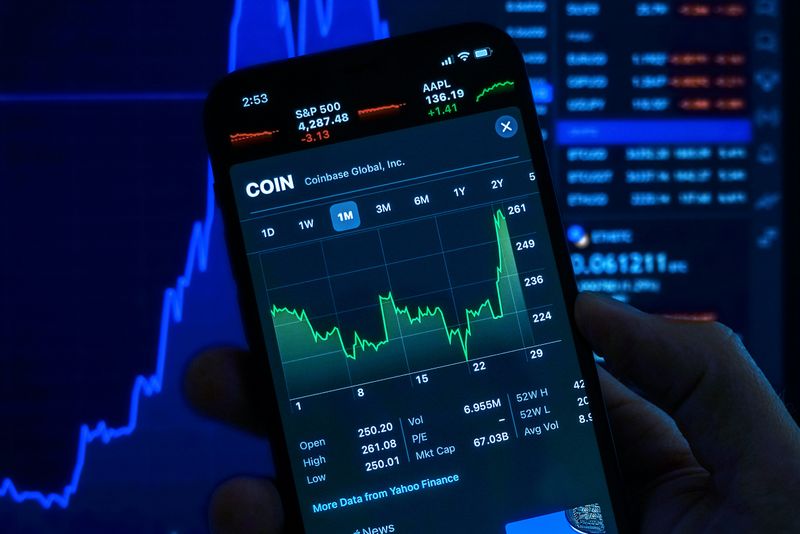Most crypto investors start their journey with centralized exchanges like Binance or Coinbase. Understandable – these exchanges are easy to use and allow investors to purchase crypto using fiat currencies. They cut out the technical aspect of crypto and are the perfect starting point for overwhelmed first-timers.
However, as you become slightly involved in the crypto space, you’ll realize that centralized exchanges lack some things. For starters, they go against the “decentralized” aspect of the blockchain. Due to this, the coin trading pairs are limited. You also expose yourself to a single point of attack to hackers i.e. the exchange’s wallet where your funds are stored.
Thus, decentralized exchanges have been gaining popularity as more people look to explore different use-cases of digital assets and gain more control of their tokens. However, practically speaking, there is a need for both these types of exchanges, and we’ll help you understand which one to opt for depending on the stage of your crypto journey.
Let’s dive in.
Centralized exchanges: the bankers of the crypto world
Centralized exchanges work similarly to a traditional bank, but a twist. You usually deposit your spare money with your bank, right? (unless you’re the ‘keep it under my bed’ kind, like my grandmother). When you need to send that money to someone, you initiate a transaction, and your bank transfers it to the designated bank account.
In this process, you entrust your money to your bank, which charges you a fee for this service. This achieves two things. Firstly, you know that your money is safe, and a robbery will not leave you broke (unless the bank itself goes bankrupt, in which case, you’re at the mercy of insurance providers.) Secondly, your bank makes the transfer of money hassle-free, and you don’t have to carry cash around.
Similarly, a centralized exchange is a platform that matches buyers with sellers and charges a fee for its services. This means that you don’t have to go looking for a seller to buy crypto or worry about the seller withholding the tokens after payment — the exchange takes care of executing the buy and sell order.
It also secures your assets in a wallet controlled by the exchange, just like the bank takes care of the money in your account. So, essentially, centralized exchanges act as third parties that handle the transactions on behalf of their users.
But isn't this completely against what crypto advocates? Satoshi Nakamoto’s motivation behind creating Bitcoin, which eventually inspired altcoin creations, was to remove the necessity of trusting a third party with your money. With crypto, you should be able to directly transact with other Bitcoin holders and bypass traditional financial institutions like banks, and avoid crises like the 2008 one.
However, the fact still remains that other methods of transacting with crypto come with a huge technical learning curve and significant limitations. We cannot expect people to completely adopt crypto in the way it was meant to be until we make it easy for them. Thus, to get your foot in the door, centralized exchanges remain one of the most popular ways of investing in crypto.
Examples: Binance, Coinbase, Kraken, KuCoin, Huobi Global, FTX, and more. CoinMarketCap alone lists over 300+ centralized exchanges, although the top 10 have the lion’s share of the market volume.
On the other hand, crypto natives and people who want to support the ethos of the space typically use a decentralized exchange. Let’s look at how they actually work.
What’s better than your ex..? DEX!
Ever had your trust broken by your ex-partner or friend? Hurts, doesn’t it? That’s why we have decentralized exchanges or DEXes which do not require you to place your trust in anyone.
In a decentralized exchange, your assets are stored on the blockchain, and transactions are carried out peer-to-peer with no third-party intervention.
DEXes have smart contracts, which are algorithms that execute the transactions when the conditions are met. It’s like there’s a robot that has specific instructions to execute orders when certain criteria are fulfilled. Unlike humans, it’s easier to trust an unbiased robot to carry out transactions because at least they won’t steal it for themselves!
Examples: Uniswap, dYdX, PancakeSwap, SushiSwap, and more.
Centralized Exchanges vs. Decentralized Exchanges: The Key Differences
Control and security:
A centralized exchange stores your assets and hence has control over it, but in decentralized exchanges, you are in control of your assets.
With control comes security — if a centralized exchange gets hacked, you could lose your assets. Decentralized exchanges are theoretically more secure. There are still hacks with decentralized exchanges but you retain control of the permissions you give to the exchange. If you revoke access to their smart contract, you can be shielded from getting breached. Additionally, you can review their source code to identify potential problem points.
However, allowing centralized exchanges to control your assets has its advantages, which we will discuss below.
Fees:
Like banks, centralized exchanges charge a percentage fee for their services. But there are very low to no fees in decentralized exchanges, since there are no third parties helping execute the transactions or storing assets.
You do need to account for the gas fees to be paid in decentralized exchanges, though, which can sometimes be steep. However, that’s a one-time fee, and that model works out well if you’re transacting with large amounts of money.
Speed:
Centralized exchanges take about 10 milliseconds on average to execute transactions --- that’s less than the blink of an eye, which lasts for about 100 milliseconds! On the other hand, decentralized exchanges are much slower, taking at least 15 seconds to match buy and sell orders.
No, it’s not because DEXes are technologically limited or something. Since centralized exchanges have control over your assets, their transaction speeds are higher. Speed is, therefore, one of the benefits of allowing your exchange to control your assets.
If you are a retail trader, the speed of transactions may not be important to you. But for high-frequency traders, one millisecond can turn a profit into a loss and vice-versa.
Liquidity:
Centralized exchanges have higher liquidity than their decentralized counterparts. This is primarily because centralized exchanges have more users and market makers that provide liquidity.
Besides, fiat-to-crypto transactions cannot be usually executed on decentralized exchanges. Thus, centralized exchanges become an essential starting point for traders to turn their fiat into crypto. This adds to the liquidity of centralized exchanges.
However, decentralized exchanges are evolving and trying to provide more liquidity with features like the automated market maker model, liquidity pools, and swaps. We’re still a bit away from making this a reality, though.
Privacy and regulation:
One of the reasons people prefer decentralized exchanges is the anonymity that comes with them. You don’t need to verify your identity to transact on DEXes. However, on centralized exchanges, users generally have to verify their identity before starting trading.
But collecting user information makes centralized exchanges easy to regulate compared to decentralized exchanges. DEXes are more difficult to regulate since they are distributed on the blockchain.
Centralized vs decentralized exchanges: Which one is right for you?
Which type of exchange suits you the best depends on your preferences and priorities. For instance, if you prefer privacy, DEXes are your best bet. But if you want to ensure that your money is being handled by regulated entities in compliance with all laws, you’d have to go with centralized exchanges.
Similarly, if keeping your assets secure and under your control is a priority for you, look for good DEXes. But if you are looking for advanced trading features like margin trading, spot trading, portfolio management tools, or just want to convert your fiat into crypto, you have to opt for centralized exchanges.
Compared to centralized exchanges that emerged years ago, DEXes are still in their infant stage which explains some of their limitations. For instance, most decentralized exchanges do not allow you to purchase crypto with fiat currency but have on-ramp solutions. As expected, a lot of people drop off at this additional step.
Also, keep in mind that both centralized and decentralized exchanges are rapidly evolving and adding new features every day. So, what is a disadvantage today may be addressed and fixed a few months from now.
There is no perfect exchange for anyone. Both types of exchanges come with strings attached, and it is up to you to decide which type of exchange best suits your needs and preferences.
Lipsa Das is the founder of Spiritwish, and you can find her on Twitter, LinkedIn, and Instagram.
Of course, don't forget to subscribe to the weekly Hedgehog newsletter!






